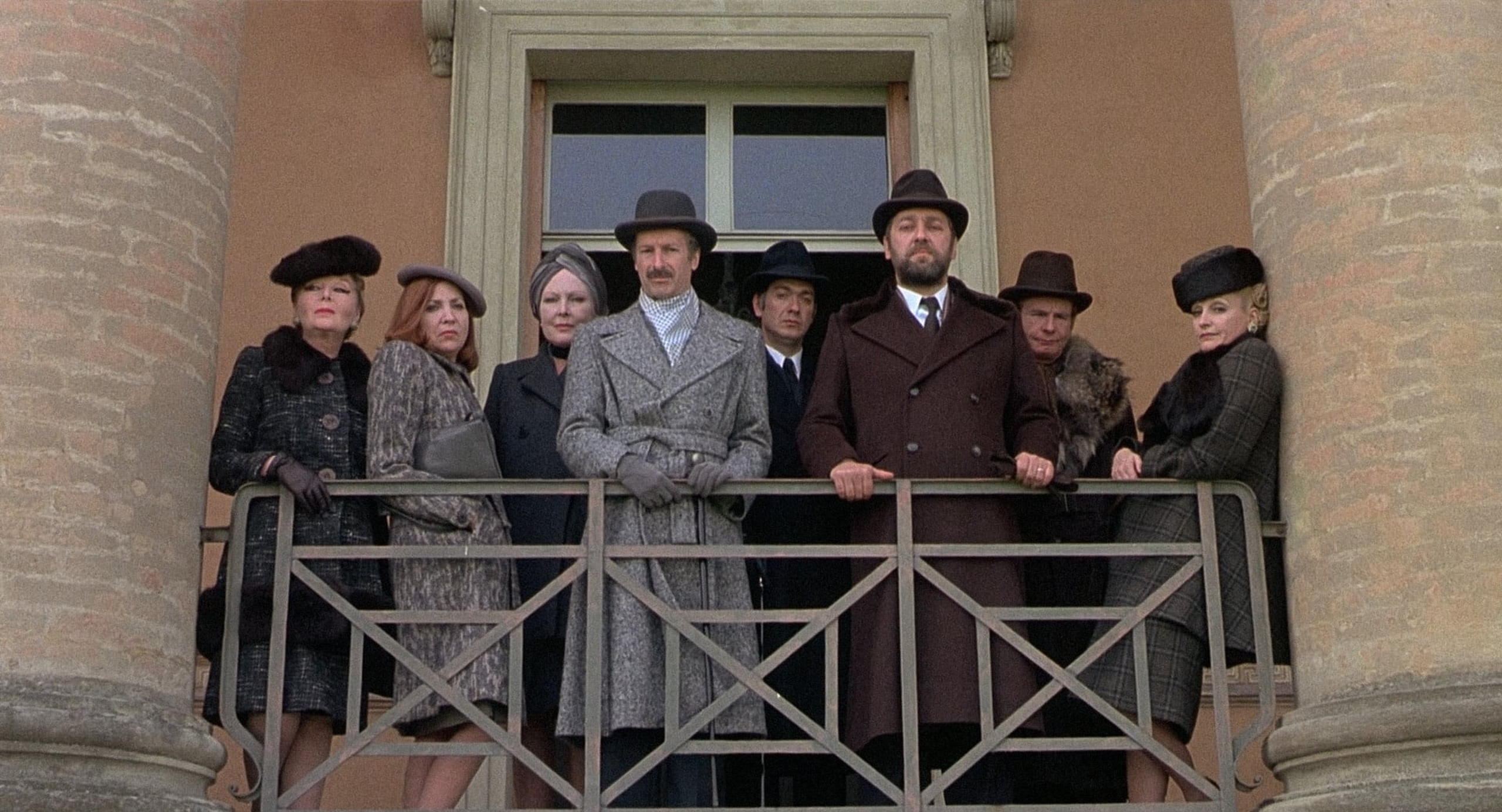Salò, or the 120 Days of Sodom – Film Review
Published January 18, 2024

Director Pier Paolo Pasolini‘s Salò, or the 120 Days of Sodom is an audacious and disturbing cinematic experience that leaves an indelible mark on the viewer. Released in 1975, the film is an adaptation of the Marquis de Sade’s controversial novel of the same name, transposing the setting from 18th-century France to fascist Italy during World War II. It is essential to approach this film with a strong stomach and an open mind, as it delves into the darkest corners of human nature with unflinching intensity.
The narrative unfolds in a remote mansion where four fascist libertines – the Duke, the Bishop, the Magistrate, and the President – conspire to exploit their absolute power. They abduct a group of young men and women, subjecting them to a series of sadistic and degrading rituals over the course of 120 days. The film is divided into four segments, each corresponding to the stages of Dante’s “Inferno”: Anteinferno, Circle of Manias, Circle of Shit, and Circle of Blood.
From a technical standpoint, Pasolini’s direction is meticulous, creating an atmosphere of claustrophobia and dread. The cinematography by Tonino Delli Colli is both stark and haunting, capturing the brutality of the acts committed within the confines of the mansion. The deliberate pacing and long takes contribute to the film’s oppressive ambiance, forcing the audience to confront the atrocities on-screen without reprieve.
The performances are nothing short of harrowing. The young cast, largely inexperienced, delivers raw and unsettling portrayals of victimhood. The sadistic libertines, played by seasoned actors including Paolo Bonacelli and Giorgio Cataldi, are convincing in their embodiment of depravity. The juxtaposition between the oppressors and the oppressed is jarring, emphasizing the power dynamics at play and underscoring the film’s commentary on authoritarianism.
One cannot discuss Salò without addressing its explicit and graphic content. Pasolini unflinchingly depicts acts of sexual violence, degradation, and torture, pushing the boundaries of what is acceptable in mainstream cinema. The explicit nature of the film serves a purpose beyond shock value, forcing the audience to confront the uncomfortable truths about power, corruption, and the potential for cruelty within the human psyche.
The film’s allegorical elements are deeply rooted in Pasolini’s critique of fascism and the abuse of power. The libertines’ perverse actions symbolize the unchecked authority of fascist regimes, exploiting and dehumanizing those under their control. The use of Dante’s “Inferno” as a structural framework adds layers of meaning, drawing parallels between the atrocities depicted and the circles of hell, ultimately questioning the morality of those in positions of power.
While Salò is undoubtedly a powerful work of art, it is not without its criticisms. The extreme nature of the content may be too much for many viewers, and the film has faced widespread condemnation for its explicit depictions of violence and sexuality. Some argue that the shock value overshadows the intended message, making it difficult for audiences to engage with the film on a deeper, intellectual level.
Additionally, the film’s minimal character development may alienate viewers seeking a more emotionally resonant experience. The young victims are largely interchangeable, lacking distinct personalities, which may hinder the audience’s ability to form a strong connection with them. This deliberate choice, however, can be seen as a commentary on the dehumanizing effects of absolute power, reducing individuals to mere objects for the libertines’ amusement.
Salò, or the 120 Days of Sodom is a challenging and thought-provoking cinematic experience that pushes the boundaries of what is acceptable in art. Pasolini’s unflinching exploration of human depravity and the abuse of power is both disturbing and intellectually stimulating. The film’s technical brilliance, coupled with its allegorical depth, makes it a significant work in the history of cinema. However, its extreme content and lack of character development may limit its accessibility for some viewers. Approach with caution, but those willing to engage with its challenging themes will find a film that lingers in the mind long after the credits roll.
